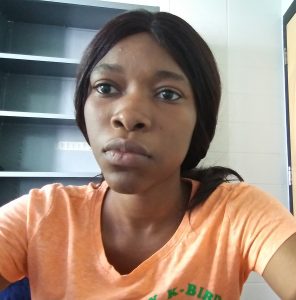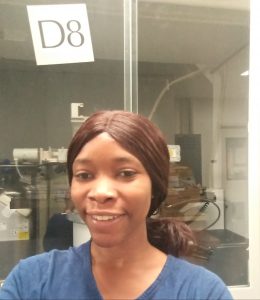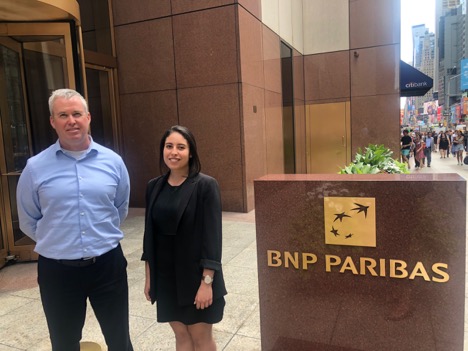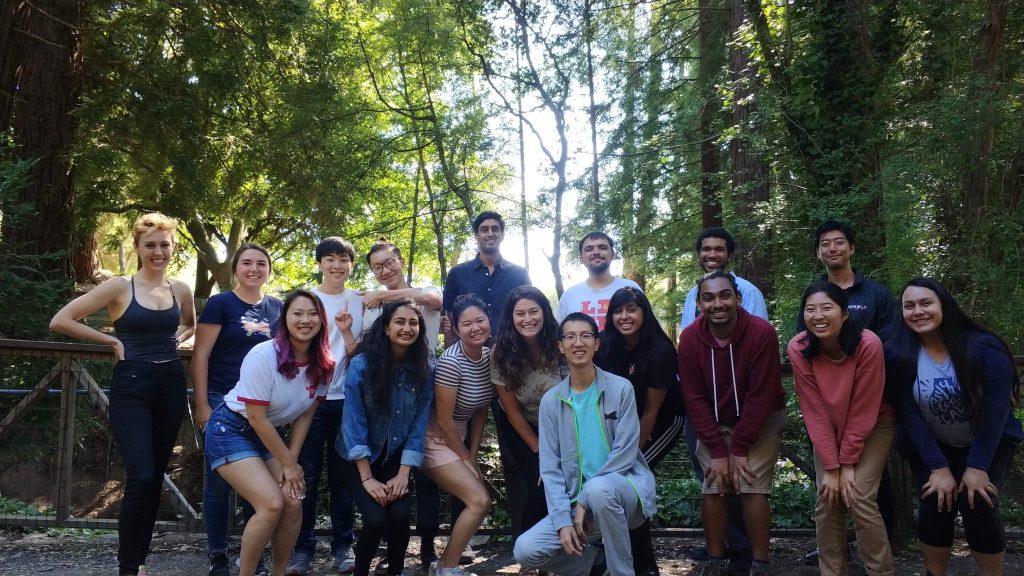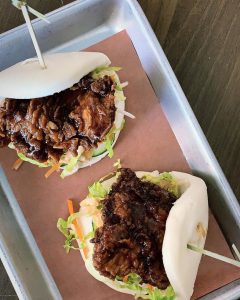Name: Riya Philip
Class Year: 2020
Major: Environmental Studies (Computer Science minor)
Hometown: Mumbai, India
Internship Organization: Missing Microbes (film), Sarah Schenck
Job Title: Post-Production Intern
Location: New York City
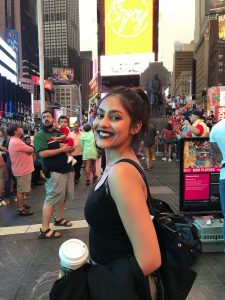
What’s happening at your internship?
Working in New York City this summer on an upcoming film which talks about consequential public health concerns has been extremely rewarding both professionally and emotionally. During these two months, I have been given opportunities to experience the electrifying energy of the city, work with extremely talented filmmakers, and expose myself to an artistic world very different from my own. Sarah Schenck ’87 employed me as her intern to work on producing parts of the film. The documentary, titled Missing Microbes, which is co-produced by Sarah and Steve Lawrence, highlights the injurious influence of antibiotic resistance and C-sections, which are destroying our microbiome and engineering it in negative ways. The feature film also studies how a personalized nutrition program based on microbe analysis can treat diabetes. My role in this internship has been diverse — learning professional editing tools, creating and editing machine-generated transcripts for the interviews from original footage, writing and uploading blog posts, managing and organizing all the data and media associated with the film, coordinating meetings with potential motion graphics companies, and participating in shoots were some of the responsibilities I enjoyed taking on. However, since this is a public health film, the content strictly revolved around medical topics, which allowed me to engage in learning about medical procedures, technologies, new discoveries and the scope of the research conducted by the doctors in this film.
Why did you apply for this internship?
I recently picked up another major last spring, Environmental Studies, due to my passionate interest in the subject, and decided that the next internship I would take on would be related to an environmental issue. I was determined to work on something exciting and relevant to my field of study, yet also beyond the traditional scope of academic subject matter — I was looking for an opportunity that would satisfy both my passion for the content I was learning, and enrich my living experience by exposing me to a completely different facet of life. After browsing through job postings, I came across an opportunity which tied together critical, contemporary foci in public health … in a film. Based on interviews with renowned names in the medical world, and with a prime focus on Dr. Martin Blaser, the author of Missing Microbes and professor of microbiology at NYU, my interest was piqued. The opportunity dealt with crises in health, in particular the overuse of antibiotics in countries like China and India causing antibiotic resistance, the risks associated with cesarean sections, and Fecal Microbiota Transplantation (FMT) treatments as a means to alleviate the symptoms of obesity and autism, among others. The documentary’s central message revolves around the evolving human microbiome, and its significance in treatments for diseases, medical procedures and global health concerns.
Another reason I applied for this internship was because of my background. As an international student from Mumbai with a strict focus in STEM subjects, being able to work on a film was something I didn’t know if I could ever do again in my professional career. I also viewed this summer as an opportunity to build connections with people, experience NYC and explore the scope of my own talents, in skills previously foreign to my knowledge.
Living in a new city? What has that experience been like for you?
In one word? Thrilling. As someone from Mumbai, the Indian equivalent of NYC, Manhattan felt like home since I arrived. I am lucky to have family that lives in the city, which gave me a sense of comfort and security. However, even though my primary work location was in Brooklyn, I decided to live in the cultural hub of historical significance, entertainment, art and soul food — Harlem. I was lucky enough to find a gorgeous apartment right above Central Park, with roommates that I have now formed strong friendships with.
The daily commute across the city to work was an hour long each way, yet the experience taught me to become a master subway navigator — a skill you can only learn through practice! I also learned to scout the best locations for authentic food, visited NYC landmarks, went on tours, met people from a plethora of ethnic, religious and cultural backgrounds, and most importantly, taught myself to become more trusting and open.
Was there anything special about how you found this internship?
In a nutshell, I have been fortunate enough to grasp several skills — both professional and global in the scope of their applications. Learning to work with a schedule that changes on an almost-daily basis, networking and forming connections with the people producing the film, learning first-hand about the research behind the technologies employed in treatments from the doctors, and most importantly being able to comprehensively synthesize these experiences into something concrete has been advantageous to both my personal and academic outlook on the subjects I study. A special part was the degree of responsibility I was offered within the internship and the trust that followed. I was never treated as just an intern but was instead treated as family and was able to flourish as such. I was given contact with esteemed figures in various industries including public health and film, which has nourished my curiosity even further in these areas. I am also excited to start my independent film project, which will focus on a specific topic in environmental sustainability, as an extension of this internship into the next academic year.
